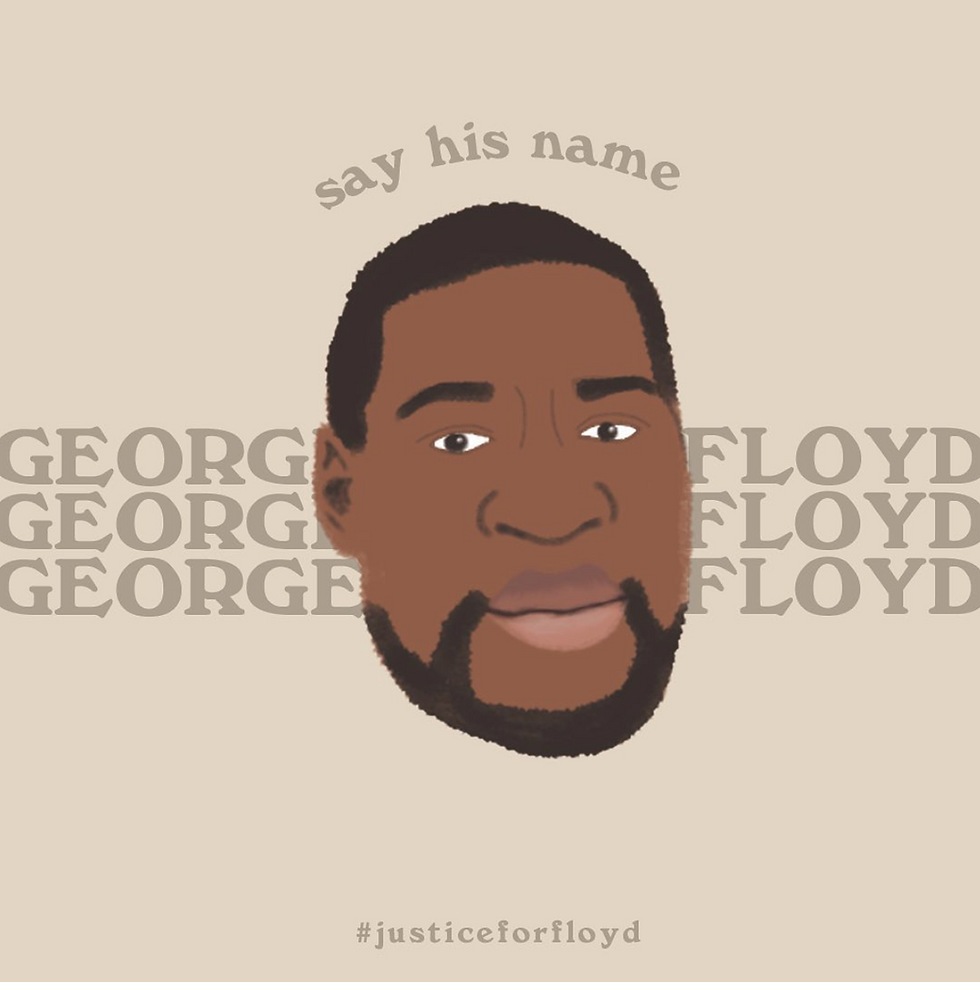US teen's TikTok video about Uighur Muslims goes viral
- Darcy Miller
- Dec 1, 2019
- 4 min read
Updated: Mar 31, 2020

Image courtesy of Feroza Aziz/TikTok
Ayra Matondang contributed social media graphics to this article.
The Bigger Picture (London) — A “makeup tutorial” posted by Afghan-American Muslim teenager Feroza Aziz to the social media app TikTok urging people to spread awareness about the repression of Uighur Muslims in the Xinjiang region has gone viral. Aziz starts the video by telling her viewers that “I’m going to teach you guys how to get long lashes...and then you’re going to… [use your phone] to search up what’s happening in China, how they’re getting concentration camps, throwing innocent Muslims in there and they’re separating their families from each other”. Aziz accuses Chinese authorities of “kidnapping”, “murdering” and “raping” Uighur Muslims, of “forcing them to eat pork”, “forcing them to drink [alcohol]”, “forcing them to convert to different religions”, and declares that the so-called “re-education camps” in Xinjiang are “another Holocaust”. She ends the video by calling on her viewers to “please be aware, please spread awareness in Xinjiang right now”.
The 17-year-old teen, who lives in New Jersey, told Hong Kong Free Press that the video was disguised as a makeup tutorial for the dual purpose of enticing people to watch the video, and in an attempt to get around TikTok’s content moderation system. However, the move wasn’t entirely successful, as TikTok, which is owned by Beijing-based corporation Bytedance, took down the video and blocked Aziz from posting on the app for a month. This led to widespread claims that TikTok was suppressing the video because it was critical of the Chinese government, although on Wednesday, TikTok published a blog post in which they claimed there had been “confusion”. TikTok said Aziz was blocked for including a picture of Osama Bin Laden in a previous video, which Aziz had said was a dark-comedy, satirical post in response to racial abuse she has received as a Muslim, and also added that the video was taken down due to “human moderation error”. TikTok’s head of safety, Eric Han, apologised and said that “nothing in our Community Guidelines precludes content such as [Aziz’s] video, and it should not have been removed”. Despite this, though, last October, Marco Rubio, the US senator, called for the app to be investigated for allegedly censoring Hong Kong protest content.
The video went viral less than a week after the release of “The China Cables”, a cache of classified government papers leaked to major news outlets including the BBC and The Guardian. It revealed more about the internal operations of the camps, which have been branded as “concentration camps” by many and house more than a million Uighur Muslims to “counter extremism and terrorism”. The Cables demonstrated the extent authorities go to to ensure the detainees cannot escape, including installing security guards in watchtowers, multiple layers of locks on dormitories, corridors, floors and buildings, round the clock video surveillance “with no blind spots”, with former interns allegedly under surveillance for “one year” after release. It also exposed the “two-tier” system being utilised within the camps, with the first tier comprising of an “education transformation” lasting at least a year, in which detainees are forced to learn Mandarin and are brainwashed with Communist ideology, and a second tier involving a three to six month-long term of “labour skills training”, or forced labour as alleged by detainees. Earlier this month, more than 400 pages of internal government documents were leaked to the New York Times, revealing that in April 2014, Xi Jinping, President of the PRC, called for a “struggle against terrorism, infiltration, and separatism” using the “organs of dictatorship”, showing the gulf between what Chinese officials say about the camps in public and behind closed doors.
in April 2014, Xi Jinping, President of the PRC, called for a “struggle against terrorism, infiltration, and separatism” using the “organs of dictatorship”
In the so-called “re-education camps”, detainees are interned without trial or charges, and witnesses have reported brainwashing, public humiliation, torture, beatings, electrocutions, and a long list of other violent actions proliferated by authorities. Children have been operated on, and detainees were forced to drink alcohol and eat pork, practises that are forbidden by Islam. Furthermore, Xinjiang has been described as “the most extensive police state in the world”, with Beijing installing 7300 checkpoints and 100,000 police officers in the region, or in practical terms, residents encounter “four or five” of these checkpoints every kilometre, where they must have their biometric data (faces and irises) checked and scanned. Residents are forced to install “nanny apps” on their devices which track and document everything they read and write on the device, recording audio of everything they say. AI machine learning software flags Xinjiangers for using “religious speak” or displaying “a lack of fervour in using Mandarin”. More than 20 countries issued a statement to the UN High Commissioner for Human Rights condemning the situation in Xinjiang, but China ignored it, showing no concern for the rights or welfare of people in Xinjiang, mainland China, Hong Kong, Tibet, or any other region where they proliferate human rights abuses against their own people.
[China shows] no concern for the rights or welfare of people in Xinjiang, mainland China, Hong Kong, Tibet, or any other region where they proliferate human rights abuses against their own people.



Comments